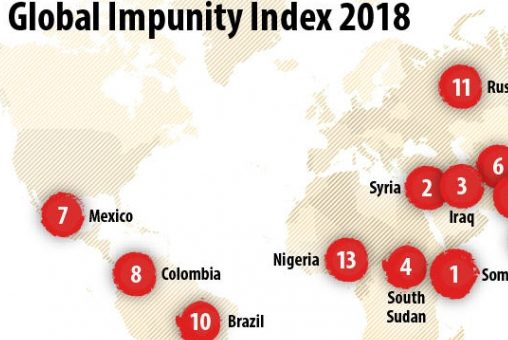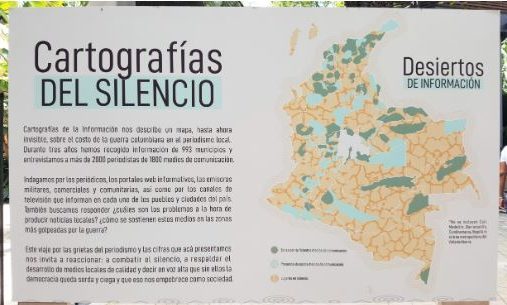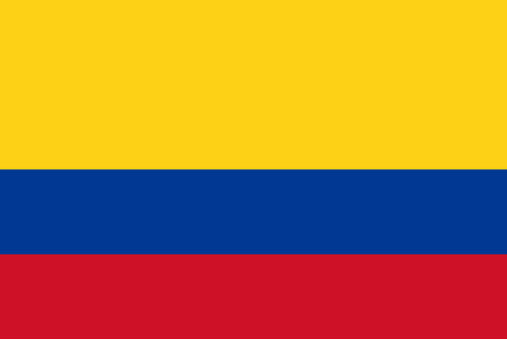
Mexico, Colombia and Brazil are among the top 14 countries in the world where the murderers of journalists are not punished in court.

For more than four months, 19 Ecuadorian and Colombian journalists from different media, along with national and international organizations, followed the tracks of three press colleagues abducted and murdered on the border between the two countries earlier this year.

When the peace process with the Revolutionary Armed Forces of Colombia (FARC, for its initials in Spanish) began in 2015, the team at the country's Foundation for Press Freedom (FLIP) wanted to measure the armed conflict's impact on local journalism.

Stories about the effects of man-made environmental disasters, the fight for women’s rights and an international refugee crisis were recognized at the 2018 Gabriel García Márquez Journalism Awards.
A Colombian judge denied a tutela – a judicial recourse in the country to restore fundamental rights – filed by prosecutor Daniel Hernández against journalist María Jimena Duzán because of an opinion column, Semana magazine reported.
Due to the various attacks against journalist Claudia Julieta Duque and her daughter, María Alejandra Gómez, since 2001, the women presented their case against Colombia before the Inter-American Commission on Human Rights (IACHR) this Oct. 1, according to the Foundation for Press Freedom (FLIP, for its acronym in Spanish)

After learning that a Colombian prosecutor had lodged a tutela – the country's judicial recourse to restore fundamental rights – against journalist María Jimena Duzán due to an opinion column, scandal broke out in the country as colleagues and press freedom organizations expressed their rejection of the use of this mechanism.

Colombia’s Foundation for Press Freedom (FLIP, for its acronym in Spanish) called on the Attorney General and the Ministry of the Interior to promptly investigate recent death threats made against journalists in early September. These threats were made by an alleged paramilitary group Águilas Negras.
News of the murder of journalist Jaime Garzón Forero on Aug. 13, 1999, shocked Colombia. At dawn that day, assassins ended Garzón’s life with five shots as he was driving in his car to the station Radionet where he worked.
One day after the 19-year anniversary of the murder of Colombian journalist Jaime Garzón Forero, a second conviction in the crime against him was reported.
In Colombia, civil society has made a series of appeals to the State to stop the wave of attacks and threats against journalists and social leaders that has been taking place with increasing intensity over the last four years, according to the Foundation for Press Freedom (FLIP, for its acronym in Spanish).
The regions of Cauca and Valle del Cauca recently saw the loss of two journalists in less than 24 hours early this month. Although neither had previously reported any threats, their deaths occur at a time of increasing violence against the press.